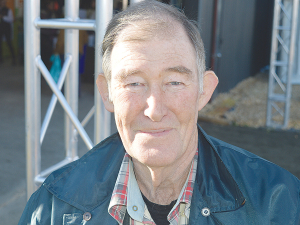University of Waikato breaks ground on new medical school
The University of Waikato has broken ground on its new medical school building.
 Dr Ross Lawrenson believes the rural sector will be hit hard unless more doctors are trained to work in the regions.
Dr Ross Lawrenson believes the rural sector will be hit hard unless more doctors are trained to work in the regions.
Train more doctors locally for the rural sector otherwise the regions will face an acute shortage of general practitioners.
This warning comes from University of Waikato Professor of Population Health Dr Ross Lawrenson, who is leading the push for a third medical school in the country.
Lawrenson told Rural News that 20% of our GPs are over 65 and are in the pipeline to retire, while there are others who are nearing 65 and planning to retire. "And we're also losing doctors under 50 who are leaving general practice," he says.
Lawrenson believes the rural sector will be hit hard unless more doctors are trained to work in the regions.
"We know that our rural doctor tends to be older, they tend to be owner/operator, so they own the practice and find it difficult to find someone to takeover that practice," he says.
Doctors train either to be a general practitioner or a specialist. Lawrenson says these days, more opt for specialist roles in urban centres.
"In my day, 50% doctors after they finished training went into general practice," he says.
Right now, there are 4,000 GPs and 5,000 specialist doctors in New Zealand.
Lawrenson says this means we need half of our output from medical schools to go into general practice.
"But at the moment only 20% go into general practice," he says. "The terms and conditions you can get in the hospitals are much more secure than running your own business in a rural community."
Lawrenson says to provide good care, there should be a doctor to every 1,000 patients. But in some rural communities, there is only one doctor for every 5,000 patients.
"This means you can only deal with the urgent cases coming through the door and you can't do the preventative health care that we want our GPs to do."
While visiting the Fieldays last month, Lawrenson says he heard stories daily about how general practices are struggling to find New Zealand-trained doctors to work in regional or rural essential family doctor services.
Lawrenson says this is why a third medical school that helps meet current and future workforce needs, and that attracts students from a wider range of backgrounds, needs to be established at the University of Waikato.
Lawrenson says the university's research shows that a medical school in the regions would better support graduates to choose to remain in the regions and that is one of the main reasons he is advocating for the government to support a medical school at Waikato.
He says the university would establish the New Zealand Graduate Entry Medical School (NZGEMS), which is based on successful international models of community-engaged graduate entry-only medical schools. It would select up to 160 students who have already completed a three-year undergraduate degree and provide them with four years of intensive, practical medical education.
"Certainly, the farmers and rural folk I spoke with during Fieldays agree that it makes semse to establish a medical school in the regions focused on producing doctors for general practice in our regions."
Global trade has been thrown into another bout of uncertainty following the overnight ruling by US Supreme Court, striking down President Donald Trump's decision to impose additional tariffs on trading partners.
Controls on the movement of fruit and vegetables in the Auckland suburb of Mt Roskill have been lifted.
Fonterra farmer shareholders and unit holders are in line for another payment in April.
Farmers are being encouraged to take a closer look at the refrigerants running inside their on-farm systems, as international and domestic pressure continues to build on high global warming potential (GWP) 400-series refrigerants.
As expected, Fonterra has lifted its 2025-26 forecast farmgate milk price mid-point to $9.50/kgMS.
Bovonic says a return on investment study has found its automated mastitis detection technology, QuadSense, is delivering financial, labour, and animal-health benefits on New Zealand dairy farms worth an estimated $29,547 per season.

OPINION: Here w go: the election date is set for November 7 and the politicians are out of the gate…
OPINION: ECan data was released a few days ago showing Canterbury farmers have made “giant strides on environmental performance”.